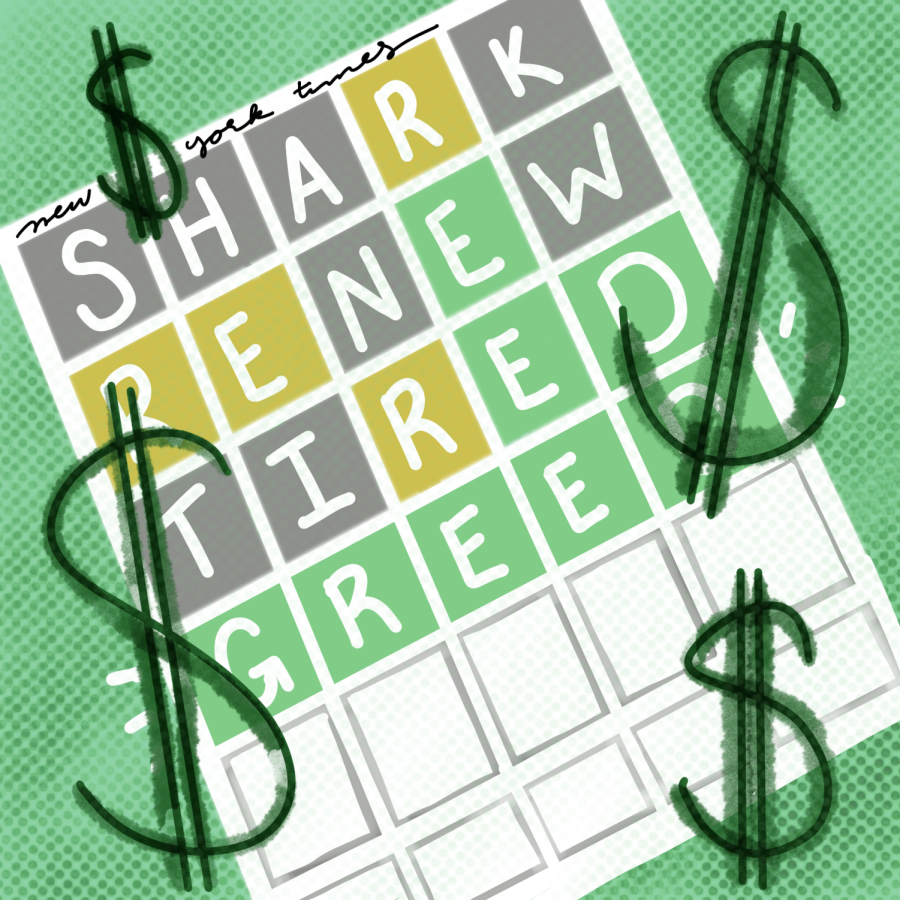Opinion | Stop monetizing everything, starting with Wordle
Feb 22, 2022
Every morning at midnight sharp, thousands of people go online to take a crack at the day’s Wordle. People around the globe come together on Twitter, Instagram and TikTok to share their Wordle results and discuss strategies. Wordle has taken 2022 by storm, challenging us and unexpectedly bringing us a little bit closer to one another — an incredibly difficult feat.
Wordle is a free, simple, five-letter word game that updates a word for users to guess every day, starting at midnight. Users have to guess the word within six attempts while getting hints along the way. If a user uses the right letter in the right place, the tile will turn green. If the letter is in the word but in the wrong place, the tile will turn yellow. If the tile turns gray, the letter is not present in that day’s word at all.
Created by Josh Wardle, Wordle started as a game meant to be enjoyed by someone he loved. He then opened it up to more people, and soon it went viral. Wordle was meant to be a free online game available to everyone. It has not disappointed on this promise so far, but recent developments may change that.
Wordle was purchased by The New York Times on Jan. 31 to join their game portfolio. While this may not seem like a problematic development, The New York Times did make a statement that the game would “initially remain free.”
This implies that Wordle will soon be monetized or implemented with microtransactions, ruining the best part of the game. If Wordle were to be monetized, the universal accessibility of the game would be lost. Only those who can afford to pay for the game would have access and the aspect of Wordle that brought people together would be gone.
Get The Daily Illini in your inbox!
However disappointing this may be, it’s not all that surprising for The New York Times. The New York Times monetizes their other game sets and even some of their reported news, making the information inaccessible unless a subscription fee is paid.
There was and is no need to make money off of Wordle and ruin a perfectly good thing. Not everything needs to be monetized and saturated with advertisements. If The New York Times truly sees the value in Wordle and what it has come to mean to so many people, they will maintain free access.
In a world of extreme polarization, Wordle is a fun interest that made headlines for positive reasons: stimulating our brains and giving a diverse population common ground. Monetization has ruined too many good things; let’s not add Wordle to the list.
Sanchita is a freshman in LAS.






